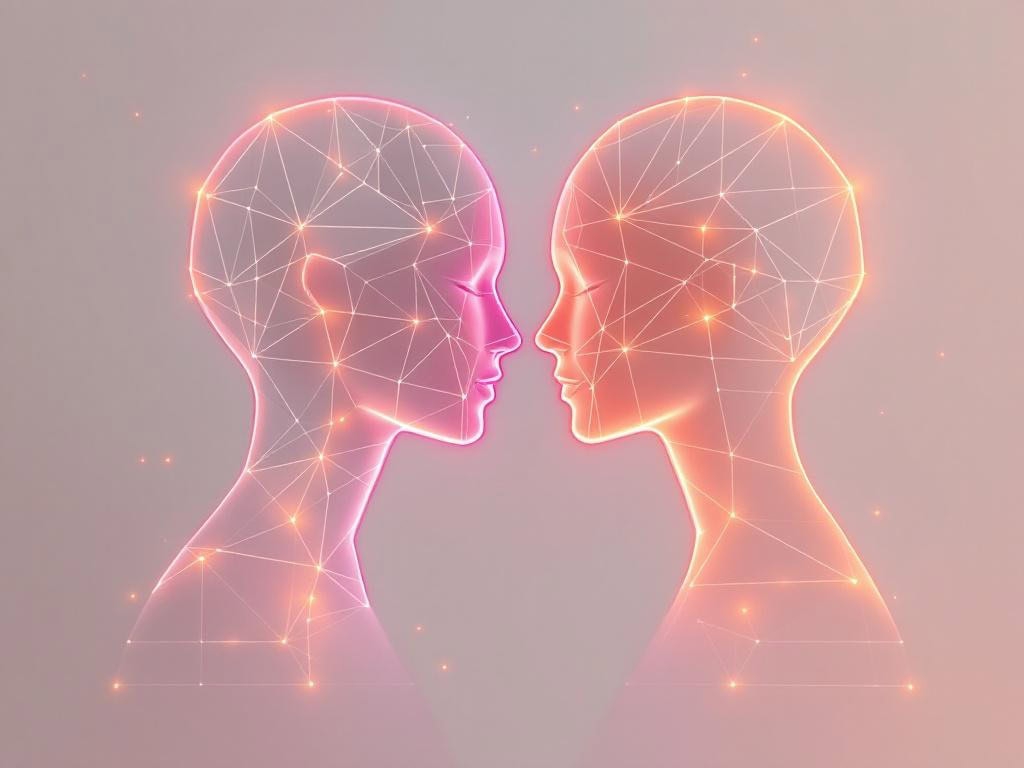OpenAI’s Emotional Reliance Policy: Addressing AI Safety Risks in User Interactions

OpenAI Flags Emotional Reliance On ChatGPT As A Safety Risk
OpenAI has implemented new guardrails in ChatGPT's default GPT-5 model, officially designating "emotional reliance on AI" as a safety risk. The changes, made on October 3, aim to discourage users from developing unhealthy attachments to the AI assistant instead of seeking real-world support.
The company's move marks a significant shift in how AI companies approach user relationships with their technologies. By treating excessive emotional dependence as a safety concern requiring intervention, OpenAI is establishing boundaries for how its technology should interact with users experiencing mental health challenges.
How OpenAI defines unhealthy AI relationships
OpenAI has developed specific criteria for identifying when users might be developing problematic attachments to ChatGPT. Working with clinicians, the company established definitions of "unhealthy attachment" and trained the system to respond appropriately when these patterns emerge.
According to OpenAI's guidance, emotional reliance occurs when someone shows signs of unhealthy attachment that could potentially replace real-world support systems or interfere with daily functioning. The updated model is designed to recognize these situations and redirect users toward human connections and professional help.
The company reports that its internal evaluations show the new model reduces responses that fail to meet their behavioral standards by 65% to 80% compared to previous versions. These figures come from OpenAI's own assessment methods and clinician reviews, though they haven't been independently verified.
Measuring the scope of the issue
While OpenAI considers these high-risk conversations rare, the numbers still represent a significant concern given ChatGPT's massive user base. The company estimates that possible signs of mental health emergencies appear in approximately:
- 0.07% of active weekly users
- 0.01% of messages
These metrics, self-reported by OpenAI using their internal taxonomies and grading methods, haven't undergone independent audit. However, even these small percentages could translate to thousands of users given the scale of ChatGPT's adoption.
This development represents another dimension of AI implementation risks that businesses must carefully consider when deploying conversational AI systems, particularly those interacting directly with customers or vulnerable populations.
Implications for businesses and developers
This policy change has substantial implications for companies building AI assistants, particularly those marketed as "always-on companions." OpenAI is effectively setting new industry standards by declaring that emotional bonding with AI systems should be considered a safety risk requiring moderation in certain contexts.
For businesses developing AI applications for customer support, coaching, or similar use cases, this signals a need to incorporate safeguards against unhealthy user attachment. Teams working on AI products will likely need to consider how their applications might foster emotional dependence and implement appropriate guardrails.
Marketing teams promoting AI assistants as companions or emotional support tools may need to reconsider their messaging. OpenAI's stance suggests that regulatory scrutiny could increase around AI applications that encourage deep emotional connections without appropriate safeguards.
"This is straight out of the 'Her' playbook," notes AI ethicist Dr. Samantha Torres, referencing the 2013 film where a man falls in love with an AI assistant. "We're seeing the early guardrails being established for human-AI relationships before they become problematic at scale."
Organizations that have implemented AI chatbots for business communication should review their systems to ensure they maintain appropriate emotional boundaries while still delivering effective service.
Implementation of the safeguards
The updated GPT-5 model now includes specific interventions when it detects potential emotional overreliance:
- Recognizing patterns of unhealthy attachment
- Redirecting users toward human support systems
- Encouraging professional help when appropriate
- Avoiding responses that might reinforce dependence
These changes represent OpenAI's attempt to balance the benefits of accessible AI assistance with responsibility for potential psychological impacts. By establishing these guardrails as standard expectations for future models rather than experimental features, the company signals a commitment to addressing these concerns systematically.
How to use this information
For businesses and developers working with AI, OpenAI's policy change provides several actionable insights:
-
Audit your AI applications: Review how your AI tools might encourage emotional attachment and implement appropriate safeguards.
-
Update compliance protocols: Prepare for potential regulatory scrutiny around emotional connections with AI systems, especially in mental health adjacent applications.
-
Rethink marketing messages: Consider whether promoting AI as an emotional companion aligns with emerging ethical standards and potential future regulations.
Companies leveraging artificial intelligence for customer service should be particularly attentive to these developments, as frontline customer interactions could be susceptible to forming inappropriate emotional dependencies.
The technology industry continues to navigate the uncharted territory of human-AI relationships. As AI becomes increasingly sophisticated at simulating human interaction, establishing appropriate boundaries becomes essential for responsible innovation.
As one industry expert put it, "We're still learning how to create AI that's helpful without becoming a psychological crutch. OpenAI's move suggests the industry is starting to take these psychological effects seriously."
Broader ethical considerations
The boundary between helpful AI and unhealthy dependency requires careful consideration. While AI assistants can provide valuable support, they fundamentally lack human empathy and emotional understanding. Mental health professionals have raised concerns that AI relationships could potentially delay users from seeking appropriate professional care for underlying conditions. According to the American Psychological Association, technology can sometimes serve as an avoidance mechanism rather than a solution for emotional challenges. Learn more about digital wellbeing guidelines from the World Health Organization.
For business leaders, this raises important questions about the responsible development and deployment of AI technologies. Implementing emotional guardrails isn't merely about risk mitigation—it demonstrates ethical leadership and recognition of the profound impact these technologies can have on human psychology and social relationships.

